The draft Law on Cadres and Civil Servants (amended) proposes to remove regulations on exams for promotion; appoint cadres and civil servants to ranks corresponding to the requirements of the job position; connect cadres and civil servants at commune level with provincial level, and unify a civil service regime from the central to commune level.
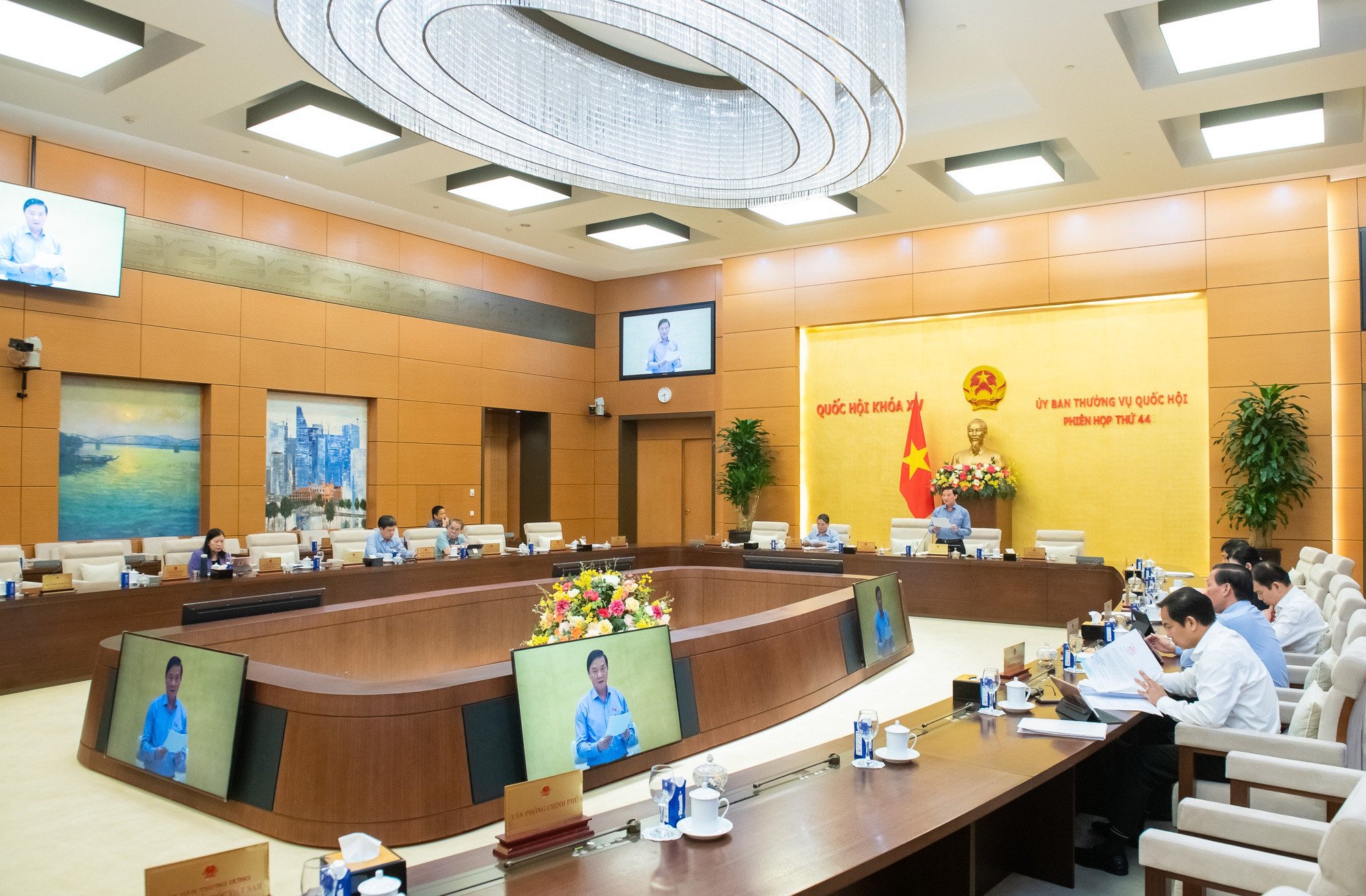
Connecting commune-level cadres and civil servants with provincial-level officials
Continuing the 44th Session, on April 28, the National Assembly Standing Committee gave opinions on the draft Law on Cadres and Civil Servants (amended).
Presenting the Summary Report of the Law on Cadres and Civil Servants (amended), Minister of Home Affairs Pham Thi Thanh Tra said that the current Law on Cadres and Civil Servants is amended to implement the Party's policy on organizing a two-level local government model, associated with the requirements of streamlining the payroll, restructuring and improving the quality of cadres and civil servants, contributing to building a professional administration, innovating national governance in a modern, effective, efficient and effective direction, focusing on development management to bring the country into a new era.
The viewpoint of building the Law is to thoroughly grasp the Resolution of the 13th National Party Congress and the Resolutions of the Central Committee and the Politburo on continuing to innovate, reorganize the apparatus of the political system to be streamlined, operate effectively and efficiently, restructure and improve the quality of the contingent of cadres and civil servants.
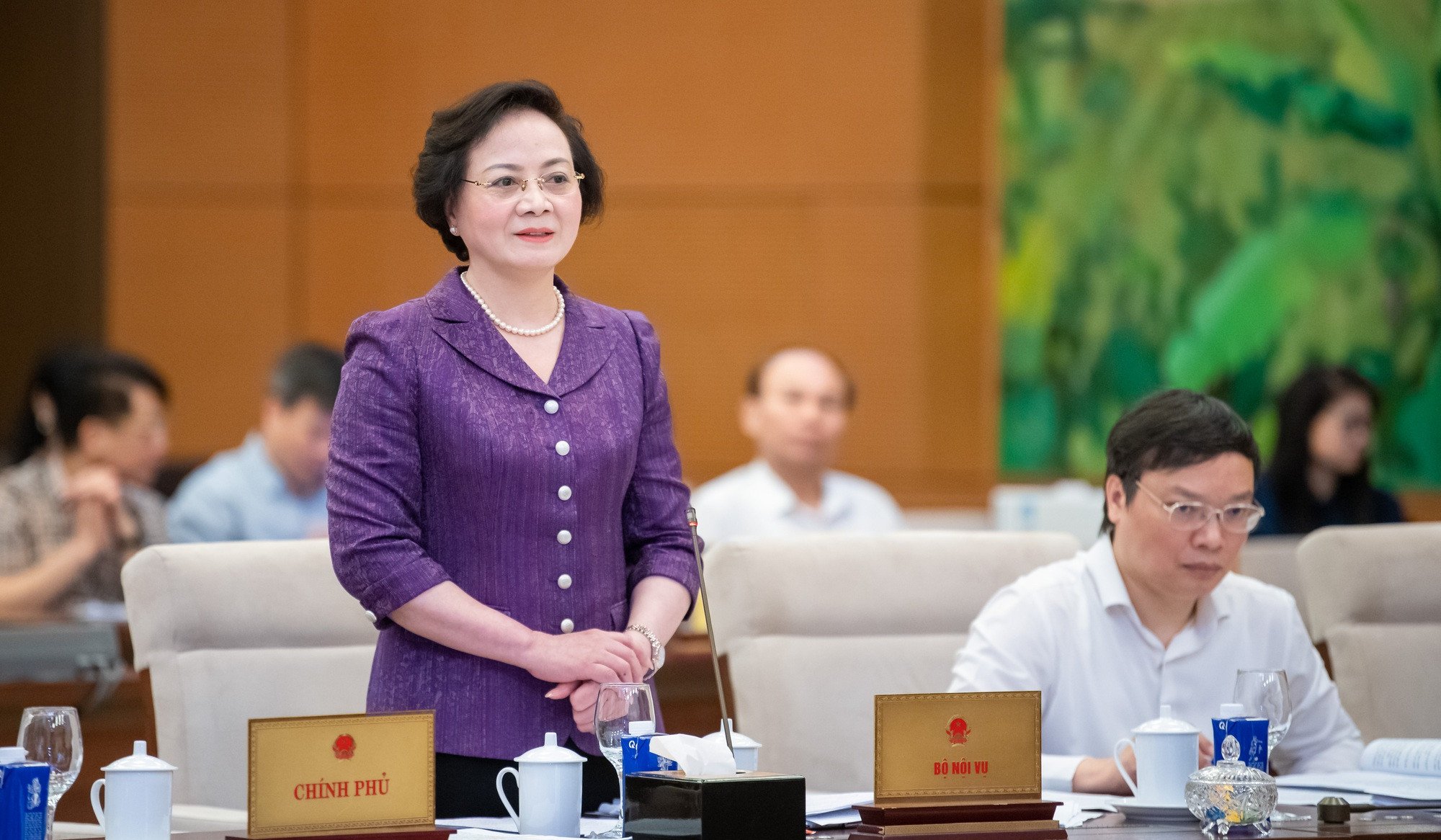
According to Minister of Home Affairs Pham Thi Thanh Tra, the draft amended Law includes 7 chapter, 52 Articles (35 Articles less than the current Law) with the following basic contents: Amending regulations to connect cadres and civil servants at commune level with provincial level, unifying a civil service regime from the Central to commune level.
Amend and supplement regulations related to the management and use of cadres and civil servants; Continue to fully institutionalize the Party's policies and guidelines on cadre work.
Specifically, on amending and supplementing regulations on connecting cadres and civil servants at the commune level with the provincial level, unifying a civil service regime from the central to the commune level, perfecting regulations to implement the policy of building a unified, connected, and synchronous civil service from the central to the commune level.
Transitional provisions for commune-level cadres and civil servants elected or recruited before the effective date of this Law, if meeting sufficient standards and conditions, will be converted into cadres and civil servants according to the provisions of this Law.
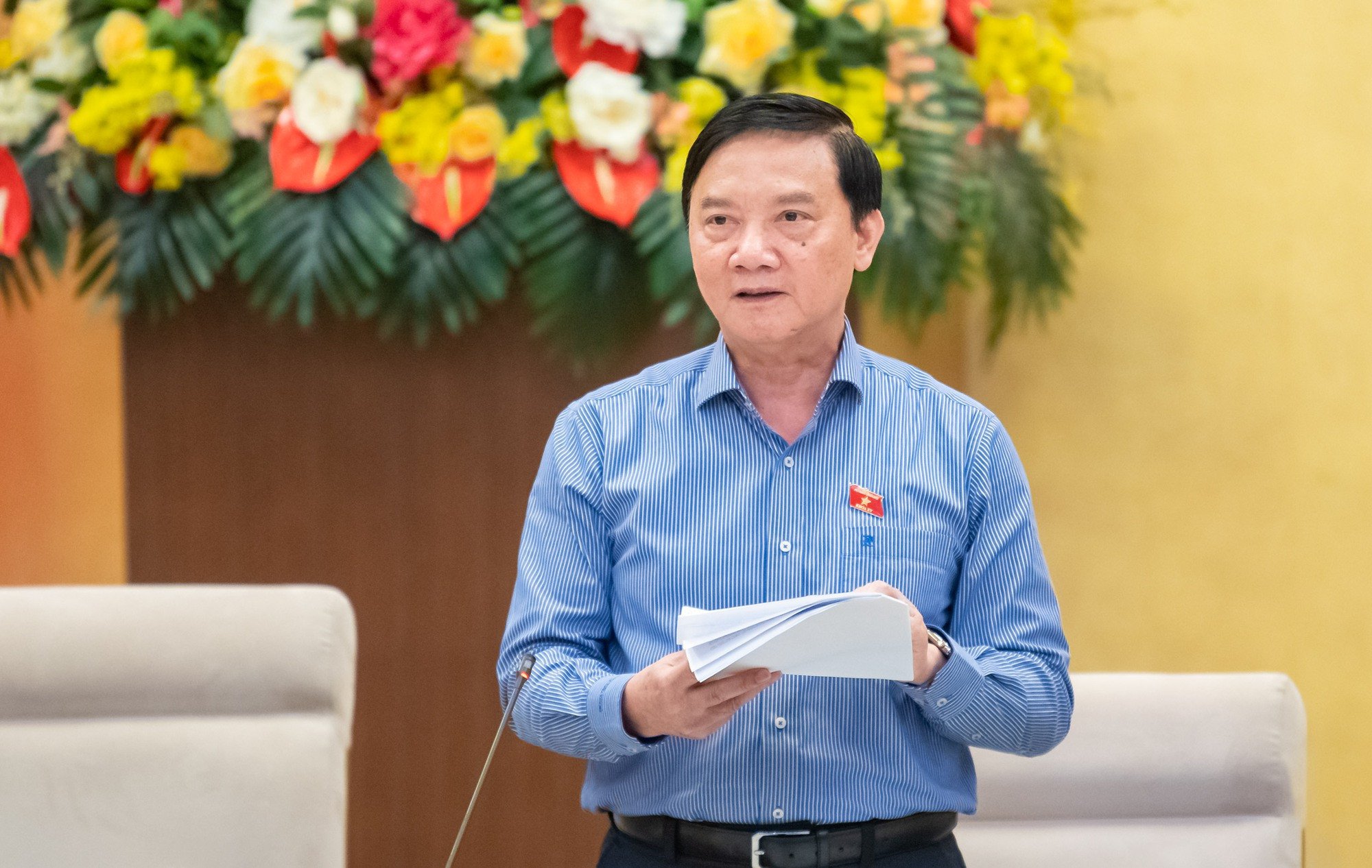
Proposal to abolish exams for promotion; appoint officials and civil servants to ranks corresponding to the requirements of the job position
In addition, amend and supplement regulations on the management and use of cadres and civil servants in a transparent and effective manner, in accordance with the requirements of administrative reform. Change the method of managing cadres and civil servants according to job positions.
Accordingly, it is clearly stipulated that the assessment, arrangement and use of cadres and civil servants must be based on the requirements of the job position and the capacity, results and effectiveness of the performance of the tasks of the cadres and civil servants;
At the same time, it is proposed to remove the regulation on exams for promotion, and instead, there is a mechanism for appointment to a rank corresponding to the requirements of the assigned job position based on capacity and performance results...
Expressing his opinion on this content, Chairman of the Law and Justice Committee Hoang Thanh Tung agreed to comprehensively amend the Law on Cadres and Civil Servants; agreed with the scope of regulation and subjects of application of the draft Law.
The provisions of the draft Law closely follow the Party's policy on streamlining the apparatus and organization of local governments at two levels, connecting personnel work, unifying a civil service regime from the central to communal levels; streamlining and merging the agencies of the Vietnam Fatherland Front, socio-political organizations, and mass organizations assigned tasks by the Party and State.
According to Chairman of the Law and Justice Committee Hoang Thanh Tung, the content of the draft Law basically ensures consistency with related laws and requires innovation in law-making thinking.
The draft Law dossier has all the documents required by the Law on Promulgation of Legal Documents, ensuring quality and meeting the conditions for submission to the National Assembly Standing Committee (NASC) for consideration and comments.
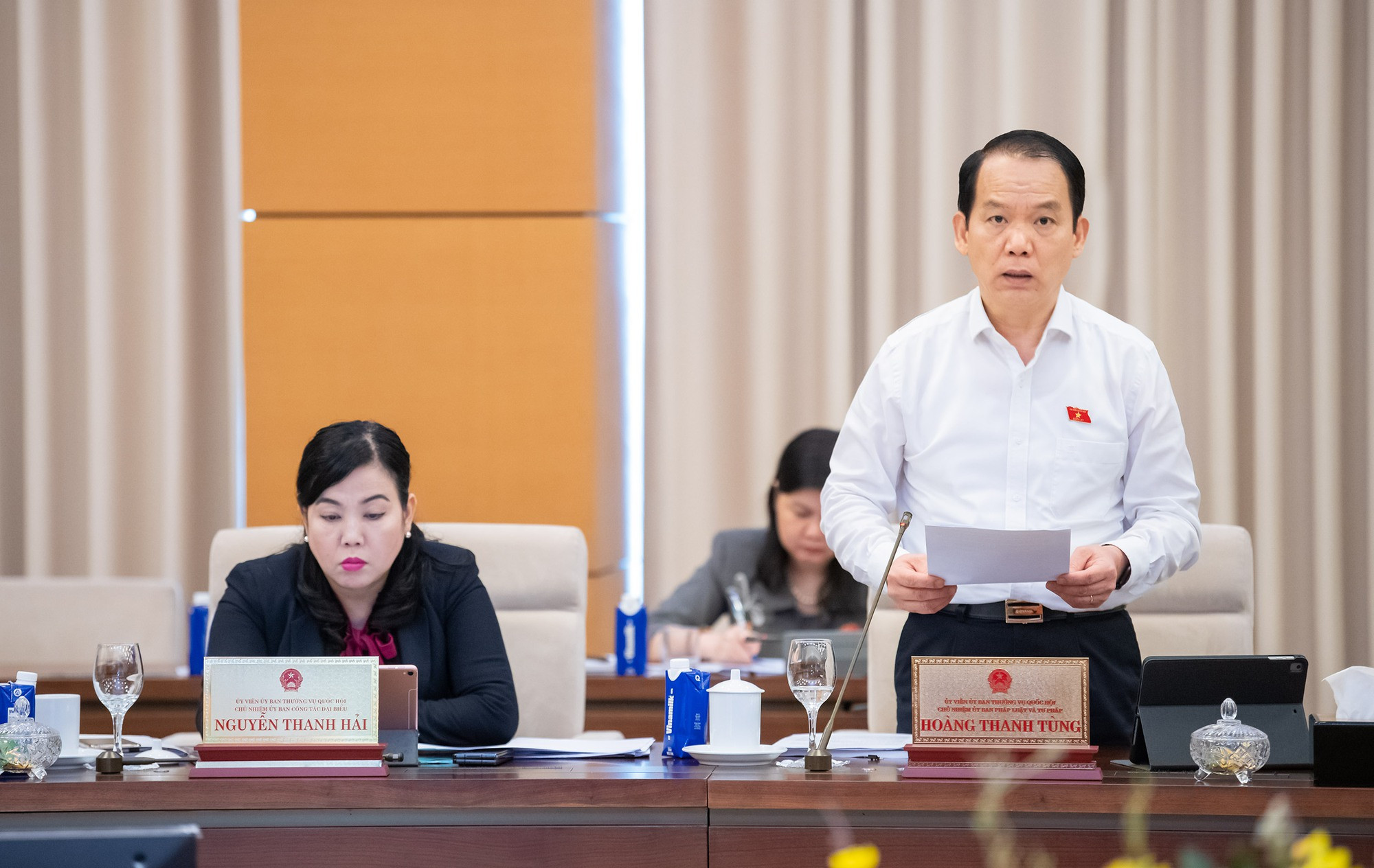
Connecting cadres and civil servants at commune level with provincial level is an urgent requirement.
Regarding the amendment of regulations to connect cadres and civil servants at the commune level with the provincial level, unifying a civil service regime from the central to the commune level, the People's Committee for Public Security agreed to amend the regulations to connect cadres and civil servants at the commune level with the provincial level, unifying a civil service regime from the central to the commune level and found that the connection at the present time has reached maturity and is an urgent requirement to serve the arrangement and streamlining of the apparatus organization, implementing the 2-level local government model.
Regarding the principles of managing cadres and civil servants (Article 4), the UBPLTP basically agrees with continuing to maintain the principle of managing cadres and civil servants as "a combination of title standards, job positions and staffing quotas", at the same time perfecting regulations on job positions and civil servant ranks as a basis for continuing to innovate the work of managing cadres and civil servants; amending regulations on civil servant assessment to have a screening mechanism, overcoming the "lifetime staffing" regime.
Regarding civil servant positions (Article 27), the People's Committee for Public Security proposed to supplement regulations on the authority to develop and approve job positions; at the same time, it proposed to carefully consider and evaluate the impact of regulations on signing fixed-term contracts for experts, scientists, and people who meet professional and technical conditions to perform certain tasks of professional and technical civil servant positions when the mechanism of signing professional and technical contracts and the civil service and public service regime exist in parallel.
In addition, Chairman of the People's Committee for Public Security Hoang Thanh Tung also gave his opinion on the policy of attracting talented people to work in state agencies and promoting officials and civil servants with outstanding qualities and abilities in public service; on recruiting civil servants; on evaluating officials and civil servants; on disciplinary action against officials and civil servants...
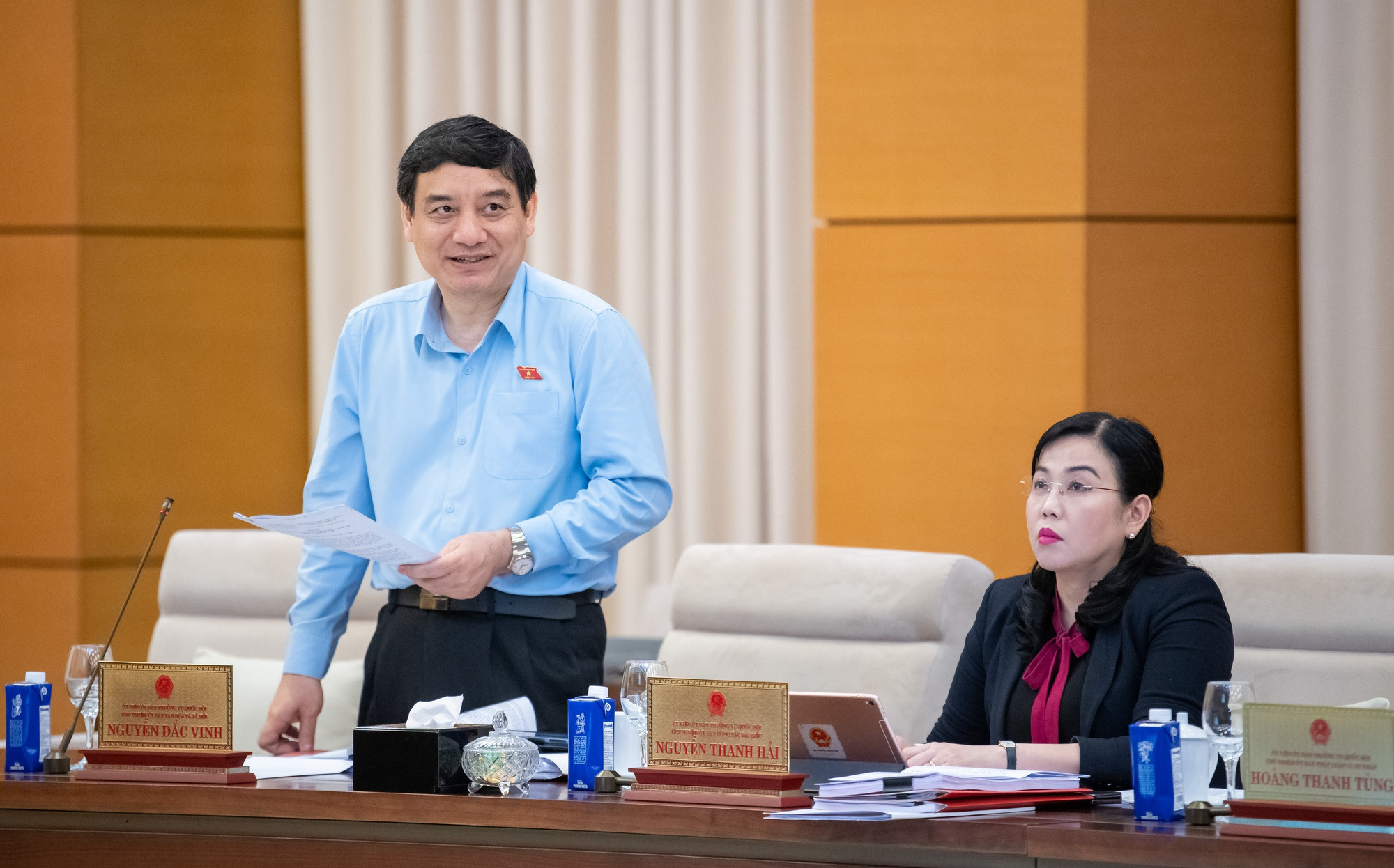
Through discussion, members of the National Assembly Standing Committee agreed with the necessity of promulgating the Law on Cadres and Civil Servants (amended); highly appreciated the efforts and attempts of the drafting agency in the process of preparing this Law project.
At the same time, opinions agreed with many contents in the draft Law and the Review Report of the Committee on Law and Justice.
At the meeting, opinions were also given on issues related to finance and budget; on policies to promote talents; on disciplinary actions against officials and civil servants...
Receiving opinions from members of the National Assembly Standing Committee, Minister of Home Affairs Pham Thi Thanh Tra explained and clarified the opinions of the delegates.
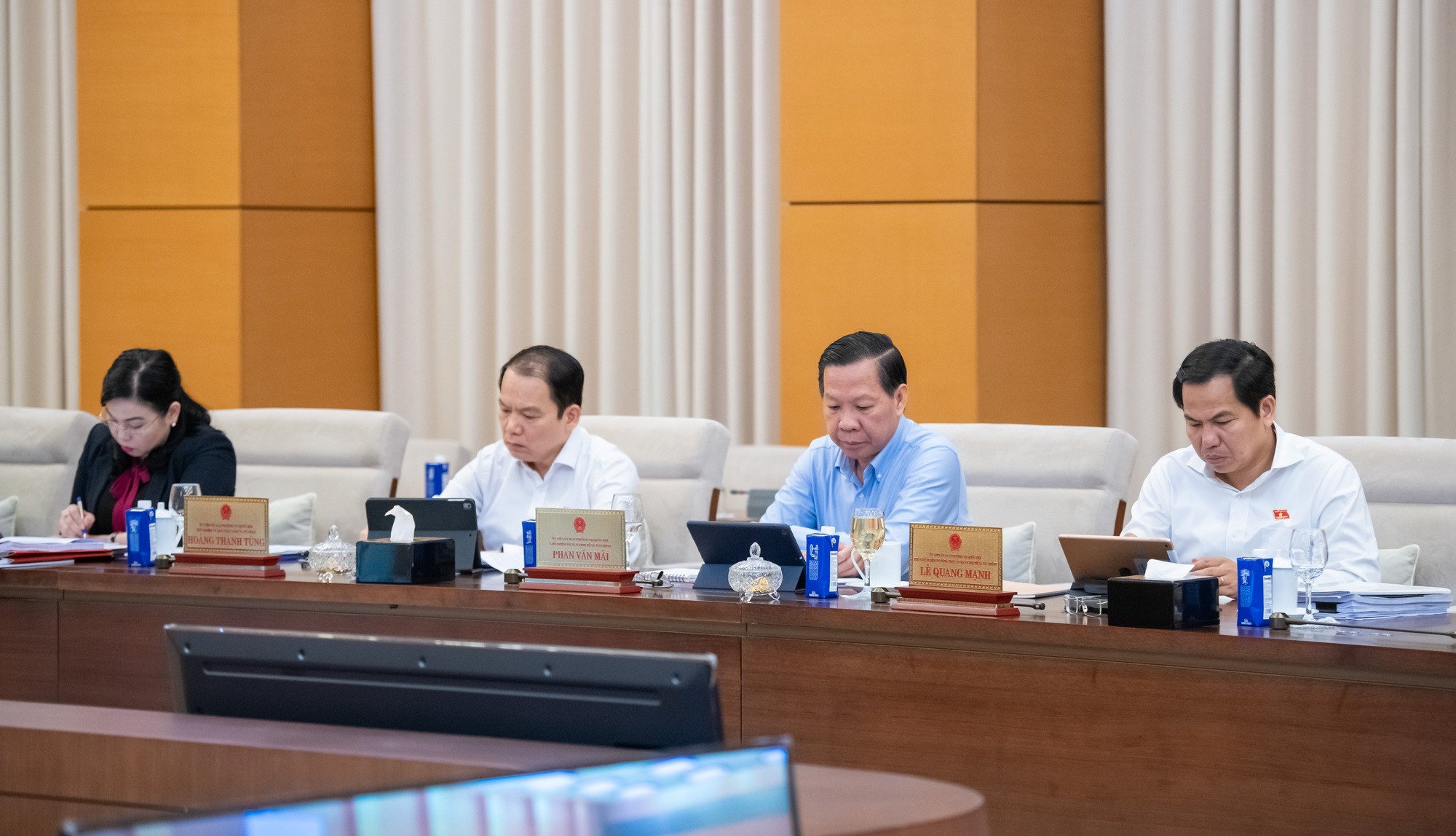
Concluding this content, Vice Chairman of the National Assembly Nguyen Khac Dinh said that the Standing Committee of the National Assembly highly appreciated the Government and the Ministry of Home Affairs as the drafting agency, the Committee on Law and Justice as the agency in charge of the review, for closely coordinating and preparing the Draft Law on Cadres and Civil Servants (amended) with complete, high-quality documents, meeting all conditions to submit to the National Assembly for consideration and approval at the 9th Session according to the shortened procedures.
The Standing Committee of the National Assembly approved the amendment of regulations to implement the connection between commune-level cadres and civil servants with provincial-level officials and unify the civil service regime from the central to commune level.
Regarding the principles of managing cadres and civil servants, the Standing Committee of the National Assembly agrees to continue maintaining the principles of managing cadres and civil servants, combining title standards with job positions and staffing quotas to ensure the stability of the cadre and civil servant team in the context of streamlining and streamlining the organizational apparatus.
At the same time, continue to perfect regulations on job positions and civil servant ranks to serve as a basis for continuing to innovate the management of cadres and civil servants in the coming time.
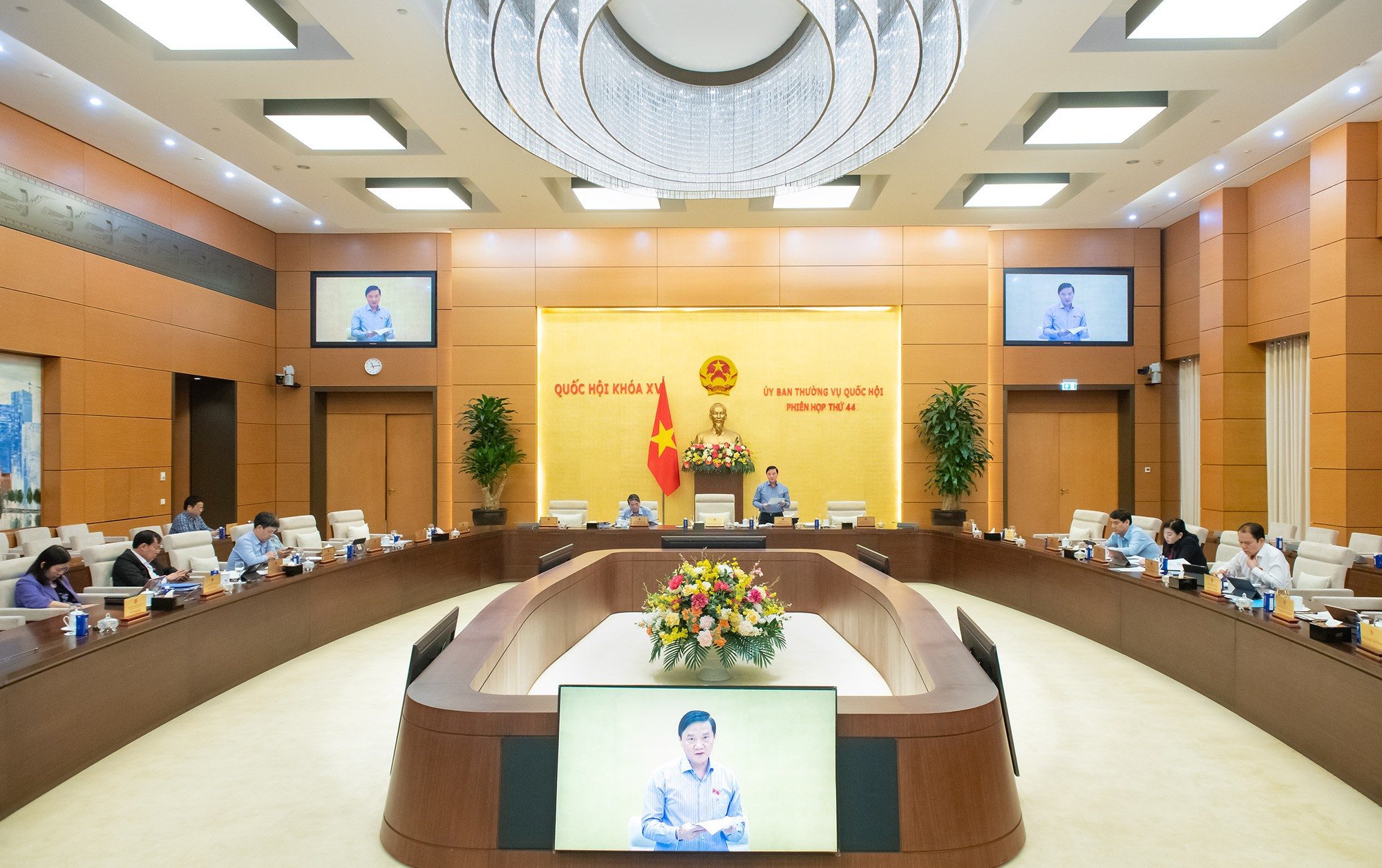
The Standing Committee of the National Assembly agrees to stipulate a number of principles on policies to attract talented people to work in state agencies and to promote officials and civil servants with outstanding qualities and abilities in public service, to stipulate them in general in the law and assign the Government to specify the policy framework in detail to ensure flexible implementation.
At the same time, it is agreed to supplement regulations on implementing fixed-term contracts for experts and scientists who meet the requirements to perform certain tasks and positions of civil servants.
The Standing Committee of the National Assembly agrees with the removal of regulations on input quality inspection of civil servants and proposes in the Report to institutionalize the Party's latest Conclusion policy.
Regarding the job positions of civil servants, the Standing Committee of the National Assembly proposed to supplement regulations on the authority to develop and approve job positions as a basis for implementation.
In addition, the Standing Committee of the National Assembly proposed to continue to improve and clarify in the Submission and the draft Law on regulations on the evaluation of cadres and civil servants and disciplinary action against cadres and civil servants as suggested by the review agency, which is to study and supplement regulations on the evaluation of cadres and civil servants to overcome long-standing limitations such as favoritism and lack of substance, leading to even classification; regulations on disciplinary action are linked to regulations on classification and evaluation to ensure consistency and substance. In addition, it is proposed to clarify issues related to finance and budget in the Submission.
Based on the opinions at this Session, Vice Chairman of the National Assembly Nguyen Khac Dinh requested the Ministry of Home Affairs and the Committee on Law and Justice to continue to coordinate closely to complete the Draft Law and the Verification Report to be submitted to the National Assembly at the 9th Session.
Source: https://baohungyen.vn/de-xuat-bo-thi-nang-ngach-bo-nhiem-can-bo-cong-chuc-vao-ngach-theo-vi-tri-viec-lam-3180909.html




![[Photo] Cultural, sports and media bloc at the 50th Anniversary of Southern Liberation and National Reunification Day](https://vphoto.vietnam.vn/thumb/1200x675/vietnam/resource/IMAGE/2025/4/30/8a22f876e8d24890be2ae3d88c9b201c)
![[Photo] Performance of the Air Force Squadron at the 50th Anniversary of the Liberation of the South and National Reunification Day](https://vphoto.vietnam.vn/thumb/1200x675/vietnam/resource/IMAGE/2025/4/30/cb781ed625fc4774bb82982d31bead1e)

![[Photo] Chinese, Lao, and Cambodian troops participate in the parade to celebrate the 50th anniversary of the Liberation of the South and National Reunification Day](https://vphoto.vietnam.vn/thumb/1200x675/vietnam/resource/IMAGE/2025/4/30/30d2204b414549cfb5dc784544a72dee)
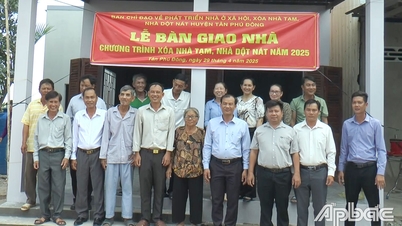


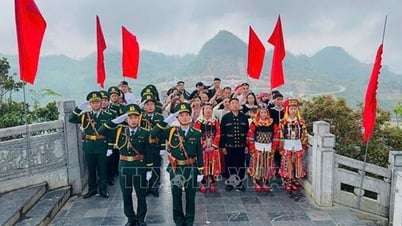





























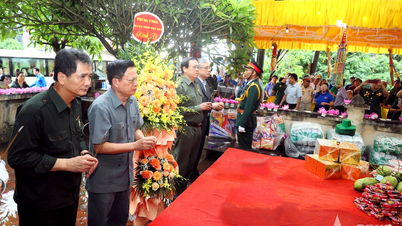
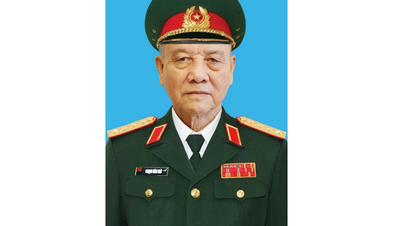






















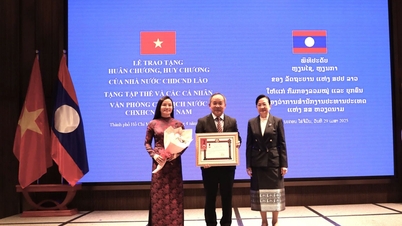


























Comment (0)